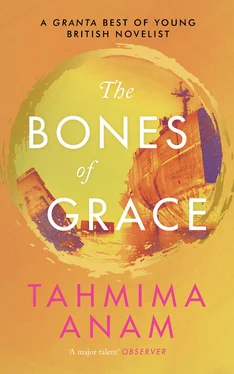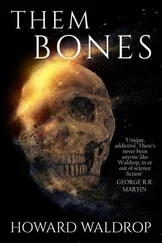And that, Elijah, is the story of our first meeting. I have had much time to dwell on it. I been able to recount every beat of our encounter, to revel in that moment of possibility. Perhaps the memory is as clear to you as it is to me; perhaps you recall that I had a bruise below my knee that you commented on at the café, and I explained that I had never learned to ride a bike and my roommate was trying to teach me before I left. Perhaps you recall our mutual love for Nina Simone and telling me that your parents had once taken you to a concert when you were six, that you regretted deeply when you were older that you had slept through the whole thing. Perhaps you will remember every detail, as I do, though the alternative is more likely — that you have erased the entire episode from your mind, because you never think of me, and even when you do — even if you remember picking up a ten-dollar bill from the sidewalk, a note that fell out when I took my keys out of my pocket — it won’t be with tenderness, but with regret. Either way: here, three years later, is the story of our meeting, and falling in love, and breaking up, and all the messiness in between. Here is every detail recorded in my mind and amplified by remorse. It is an ethnographic field study and an apology for the way I behaved, and a chance for me to give you a comprehensive account of exactly what happened — because, though we were together for so much of that time and I felt like I was telling you everything, I realise now that there was much you didn’t know, that even when you are closer to someone than you have ever been or thought you could be, there will always be silences and ellipses and things you should have said but were too afraid to admit. And somewhere along the way — I have not yet decided where — I will also tell you about Anwar, because his story is as important as ours, the three of us woven together in ways we could never have dreamt.
I had arranged to meet you in front of the Science Centre, but when I got there, ten minutes late, you hadn’t arrived. The heat had already sliced through the day; the fountains were on, and a few people were milling around the curved stone bench. There was a woman pushing a child in a stroller and a man in a black suit with a newspaper spread out between his hands, and the clown who usually hung around the entrance to the subway. I wasn’t sure what to do, so I circled back through the Yard, walking slowly, so that I could be sure you would have arrived by the time I returned. Then I thought, what if you didn’t show up, what if you walked away and I never saw you again? I rushed. When I crossed the gate out of the Yard, the man in the black suit looked up from his newspaper and I realised that you were him, and you saw me and you waved. My heart was beating so fast I thought I might crack a rib. I waved back.
‘Well hello there,’ you said, in a tone so warm and friendly it could have been the greeting of an old friend. You wore a formal white shirt and a striped tie. The comb-tracks were visible in your damp hair. I wanted to jump for joy but instead I stood restless in front of you. ‘What were you just doing?’ I asked.
‘Nothing,’ you said. ‘Just sitting. In fact, I was thinking about you.’
‘I was thinking about you too,’ I said.
You broke into a smile. I decided not to ask why you had dressed up. You said you knew the best breakfast place in Cambridge, and I said I’d had a bowl of cereal but I could always eat again. I liked the fact that people in your country took their breakfast seriously. Back home I could get ice cream at midnight, and there were fruit stalls on Mirpur Road that sold mangoes until dawn, but there was never anywhere to go in the morning. No omelettes or hash browns or complicated types of toast. I followed you out of the quad, up Quincy and down Mass Ave, past the Korean café and the wine store that I had always been too intimidated to enter. You took off your jacket and folded it neatly over your arm. We ducked into a small, unlabelled restaurant with a blue awning that I must have passed a hundred times but never noticed. The air conditioner was on full blast. You found us a table at the back and sat down, careful to restrain your tie as you pulled your chair forward.
‘Mass Ave Diner,’ you said proudly, sitting with your face towards the sun. Against the backdrop of the undertaker’s suit, the blond tangle of your hair was electric. Eyes little moons of blue light. I forced myself not to stare at you, taking in the plastic tablecloths and the large, egg-shaped man behind a flat grill in the open kitchen. Rashid would have never brought me somewhere like this; he would have taken me to an upscale brunch place on the other side of the river after reading reviews on his phone. Now you were talking to the waitress, your tone intimate, meeting her smile. The waitress left with a wink and a sneaker-clad pirouette.
We talked. You started with the story of the time your parents had taken an extended sabbatical and moved your entire family to Vermont. You remembered breaking the ice by throwing rocks into the well, keeping bees and pigs and growing your own vegetables. Your parents tried to start a small business — Strong’s Sweet Nectars — selling honey and maple syrup, thinking that they might leave it all behind and stay out there for ever if things worked out. But the experiment failed: the bees swarmed and disappeared one day, and the syrup crystallised, and your mother grew tired of washing diapers by hand, and they packed everyone up and drove you all back to Cambridge, and central heating, and running water, and eventual divorce. You were nine. The place was still there. You returned occasionally and retreated from the world, not speaking or meeting another person for days, sometimes weeks, on end.
‘I could never be quiet for such a long time,’ I told you. ‘Doesn’t it make you crazy?’
You said something about how the world became very loud when one stopped talking. Then you told me about the trees in Vermont, how they gave up their sap, and the wild turkeys that roamed the valleys, and the ice-cold lakes into which you and your brothers and your sister liked to plunge. It was all very exotic to me, because I had never been camping with my parents or jumped into anything deeper than a swimming pool. Going on the dig was the most adventurous thing I had ever contemplated doing. Thinking about it now conjured an image of another person that lived inside me, someone to whom the word ‘intrepid’ would be frequently attached.
The waitress came back. We had forgotten to order. I think I may have reached for the menu, but you looked at me and said, ‘I’m going to order for you because there’s this sandwich and I know you’ll like it. Best sandwich in the world.’
‘A sandwich for breakfast?’
‘Not a sandwich for breakfast. A breakfast-sandwich.’
You turned to the waitress and ordered. ‘Just egg and cheese for me, Betty. Coffee? Orange juice? You drink coffee, right?’
I shook my head. ‘Sorry. I hate the stuff. Do they have tea?’ You asked Betty for tea. ‘With milk and sugar,’ I said. Behind the open kitchen, the egg-shaped man poured a large spoonful of batter onto the grill.
You said, ‘Tell me about the whale dinosaurs.’
‘Well, the thing about whales is that they went the opposite way to everyone else, evolutionarily speaking.’
‘What do you mean, like they walked first and then swam?’
‘Yes. The whale’s earliest ancestor, Pakicetus , was almost entirely a land mammal. Sort of like a coyote. Ten million years later, you have Basilosaurus , who had nothing but a trace of the amphibian left in him. The intermediate species are what interest me.’
‘The intermediate species. I like that. So which ones are in between?’
Читать дальше












